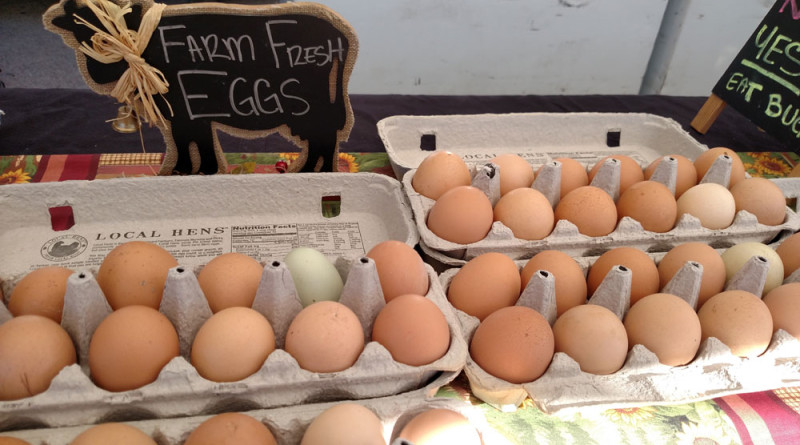Dock Lines: Cruising with limited or no refrigeration
Boaters have been sailing for millennia without refrigeration. Even as modern boats, whether sail or power, were built with galleys, often they were equipped with tiny refrigerators, far too small to accommodate the amount of food we Americans routinely pack into our fridges.
When Arv and I lived on the East Coast and kept our old Hatteras 38 on the Chesapeake Bay, we regularly anchored for long weekends and cruised for 10 days or more without regular access to refrigeration. While we had a refrigerator it was elderly and stressed. What’s more, we hated running our generator for extended periods in the quiet coves where we liked to drop the hook. I taught myself how to store our food safely using icepacks and coolers while still having varied and tasty meals using lots of fresh produce, meat and fish.
Now, though Arv installed an inverter to keep our Viking’s full-size fridge running, I find I often have excess food that won’t fit. Beyond investing in high quality insulated bags and coolers, I learned some of my best techniques for storing food safely from my favorite “go-to” guides for on-board dining, Kay Pastorius’ “Cruising Cuisine,” which is packed with simple gourmet recipes, and Carolyn Shearlock and Jan Irons’ cookbook “The Boat Galley,” an invaluable resource for far more than cooking.
Shearlock’s blog (theboatgalley.com) is chock full of useful recommendations for making life easier onboard. Beth Leonard’s article (available online), “Cool ways to keep food without refrigeration,” lists how long specific foods will keep and how to preserve their freshness.
One of the best tips for greater shelf life is to buy fresh from the farmer whenever possible and to buy products that have never been refrigerated. Refrigerated produce tends to rot from the inside out. While it’s hard to find unrefrigerated produce and eggs in the U.S., try Farmer’s markets.
Be sure the produce you select is firm and not bruised. Buy it in various stages of ripeness to extend its availability, particularly for tomatoes, avocados, pears and mangoes. Always be gentle in transporting produce to prevent damage.
Eggs never refrigerated can keep on the shelf for one to two months if rotated daily. As a precaution break each egg separately into a small bowl apart from other ingredients, in case of spoilage.
While lettuce bruises and wilts easily and lasts only a day or so outside the fridge, you can make great salads using cabbage, which can last up to two months if wrapped in paper towels or newspapers and kept dry. Many long-range cruisers develop a portfolio of recipes centered on this versatile, durable vegetable. Other cooking staples are onions, garlic and potatoes, which also keep well.
Carrots and celery will last up to two weeks outside the fridge, if wrapped in aluminum foil, with a small escape hatch for moisture. If they seem dry, soaking in water will revive them.
For fruit, store apples away from oranges to avoid over-ripening. Citrus will last up to a month if washed and dried thoroughly and then wrapped individually in foil.
Most condiments, including mayonnaise, don’t need to be chilled, as long they remain uncontaminated by bacteria. Many boaters keep mayonnaise safe by using a clean spoon or knife each time they use it, or store it in a squeeze bottle.
Boxed ultra-pasteurized long-life milk and cream, available often in baking sections, will keep for months on the shelf; olive or canola oil is a good substitute for butter.
Don’t let limited refrigeration stop you from cruising — just use your creativity.


